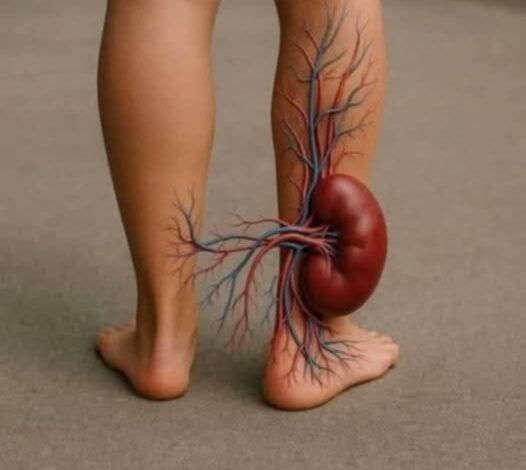Critical Warning Signs of Kidney Disease You Should Never Ignore

Your kidneys perform essential functions that keep your body healthy, filtering toxins and maintaining proper fluid balance throughout your system. These remarkable organs work tirelessly behind the scenes, but kidney disease symptoms often remain hidden until significant damage has occurred.
Understanding Kidney Function and Health
Kidney health directly impacts your cardiovascular system, blood pressure regulation, and overall wellness. When kidney function begins to decline, the effects ripple through your entire body, affecting everything from your energy levels to your heart health.
Early Warning Signs of Kidney Problems
Physical Symptoms to Watch For
Persistent Fatigue and Weakness
Chronic kidney disease often manifests as unexplained exhaustion. When your kidneys struggle to filter waste products effectively, toxins accumulate in your bloodstream, leaving you feeling constantly drained.
Swelling in Extremities
Kidney disease symptoms frequently include swelling in your ankles, feet, or hands. This occurs when your kidneys cannot properly regulate fluid balance, causing excess water retention in your tissues.
Urinary Changes
Pay attention to changes in your urination patterns. Kidney problems may cause:
- Frequent nighttime urination
- Foamy or bubbly urine
- Blood in urine
- Difficulty urinating
- Changes in urine color
Cognitive Issues
Kidney disease can affect your mental clarity. Many patients experience difficulty concentrating, memory problems, or brain fog as waste products interfere with normal brain function.
Additional Warning Signs
Muscle Cramps and Weakness
Electrolyte imbalances caused by kidney dysfunction often trigger painful muscle cramps, particularly in your legs and feet.
Nausea and Loss of Appetite
Waste buildup in your system can cause persistent nausea, vomiting, and a noticeable decrease in appetite.
Metallic Taste
A persistent metallic taste in your mouth may indicate that waste products are affecting your taste buds and oral health.
Major Risk Factors for Kidney Disease
High Blood Pressure
Hypertension is both a cause and consequence of kidney disease. Uncontrolled blood pressure damages the delicate blood vessels in your kidneys, reducing their filtering capacity.
Diabetes
Diabetic kidney disease affects millions of people worldwide. High blood sugar levels damage kidney blood vessels over time, making diabetes management crucial for kidney health.
Family History
Genetic factors play a significant role in kidney disease risk. If you have family members with kidney problems, regular screening becomes even more important.
Protecting Your Kidney Health
Dietary Approaches
- Reduce sodium intake to support healthy blood pressure
- Limit processed foods high in phosphorus and potassium
- Choose lean proteins to reduce kidney workload
- Stay adequately hydrated with clean water
Lifestyle Modifications
- Monitor blood pressure regularly
- Maintain healthy blood sugar levels
- Exercise regularly to improve circulation
- Avoid smoking and excessive alcohol consumption
Regular Medical Monitoring
Schedule routine kidney function tests, especially if you have risk factors. Early detection through blood tests and urine analysis can prevent progression to kidney failure.
When to Seek Medical Attention
Don’t wait if you experience multiple warning signs. Kidney disease treatment is most effective when started early. Contact your healthcare provider immediately if you notice:
- Sudden swelling in your face, hands, or feet
- Significant changes in urination
- Persistent fatigue combined with other symptoms
- Difficulty breathing or chest pain
The Importance of Early Intervention
Kidney disease affects millions globally, but many cases remain undiagnosed until advanced stages. Regular health screenings, lifestyle modifications, and prompt medical attention when symptoms appear can significantly improve outcomes and quality of life.
Your kidneys work silently to keep you healthy, but they need your attention and care. By staying informed about kidney disease symptoms and risk factors, you can take proactive steps to protect these vital organs and maintain your overall health for years to come.